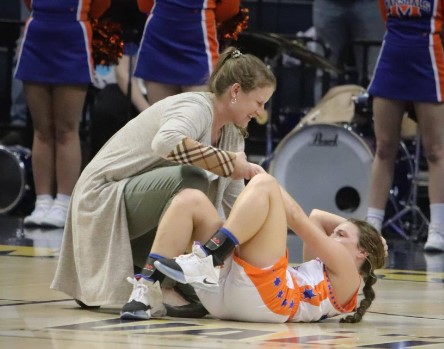This Common Practice Among Your Athletes Could Hurt Performance and Health
 A recent study highlights a concerning trend among athletes: the quest for the "right" weight, especially in endurance sports, may be detrimental to both performance and health.
A recent study highlights a concerning trend among athletes: the quest for the "right" weight, especially in endurance sports, may be detrimental to both performance and health.
 Researchers from the University of Copenhagen, including Professor Ylva Hellsten and Ph.D. student Jan Sommer Jeppesen, have delved into the effects of low energy availability on female athletes, with findings that urge a reevaluation of current practices.
Researchers from the University of Copenhagen, including Professor Ylva Hellsten and Ph.D. student Jan Sommer Jeppesen, have delved into the effects of low energy availability on female athletes, with findings that urge a reevaluation of current practices.
The study involved 12 female triathletes who underwent a trial consisting of two 14-day periods. Initially, they consumed a sufficient caloric intake, followed by a period where their intake was slashed to about 50% of their energy needs.
The results were striking: during the low-intake phase, athletes lost an average of 4% body weight, half of which was muscle mass, and experienced significant performance declines—7.7% in a 20-minute time trial and up to 18% in high-intensity tests.
The research also revealed a weakening of the immune system, marked by increased cortisol levels and heightened systemic stress. These physiological stressors not only impair performance but could expose athletes to greater health risks.
"It is quite severe impact on several aspects of the immune system if one doesn't eat enough," Jeppesen noted.
This study is critical for Athletic Trainers working with athletes across all levels. It underscores the necessity of prioritizing adequate nutrition and challenging the entrenched sports culture that often equates lighter with better.
It's essential to advise athletes against drastic weight loss measures, particularly before competitions, and to advocate for nutritional strategies that support long-term health and optimal performance.
Team Denmark has already recognized the value of this research, planning to incorporate the findings into their educational programs for athletes and coaches.
"My experience is that elite athletes and coaches are curious, but need research that backs up any critiques of the phenomenon. Here, the fact that the test subjects are actual athletes is a major strength."
This reinforces the message that sustainable eating habits are crucial and that the traditional emphasis on cutting weight can have lasting negative effects on athletes, especially women.
They were able to determine that "refeeding" did not help either. Athletes were provided plenty of food for 3 days prior to competition.
"We had expected that the three days of enough food would restore their performance—and maybe even improve it—but there was absolutely no effect. Their performance was just as degraded as prior to the three days."
This study provides compelling evidence to support nutritional education and to promote health-first approaches in athletic training. By understanding the severe consequences of low energy availability, you may be able to more effectively guide athletes, helping them to achieve peak performance without compromising their health.
Read the full study here!
![HR Logo [Recovered]_Full Color Vertical-1](https://blog.healthyroster.com/hs-fs/hubfs/HR%20Logo%20%5BRecovered%5D_Full%20Color%20Vertical-1.png?width=199&height=178&name=HR%20Logo%20%5BRecovered%5D_Full%20Color%20Vertical-1.png)
 By
By


